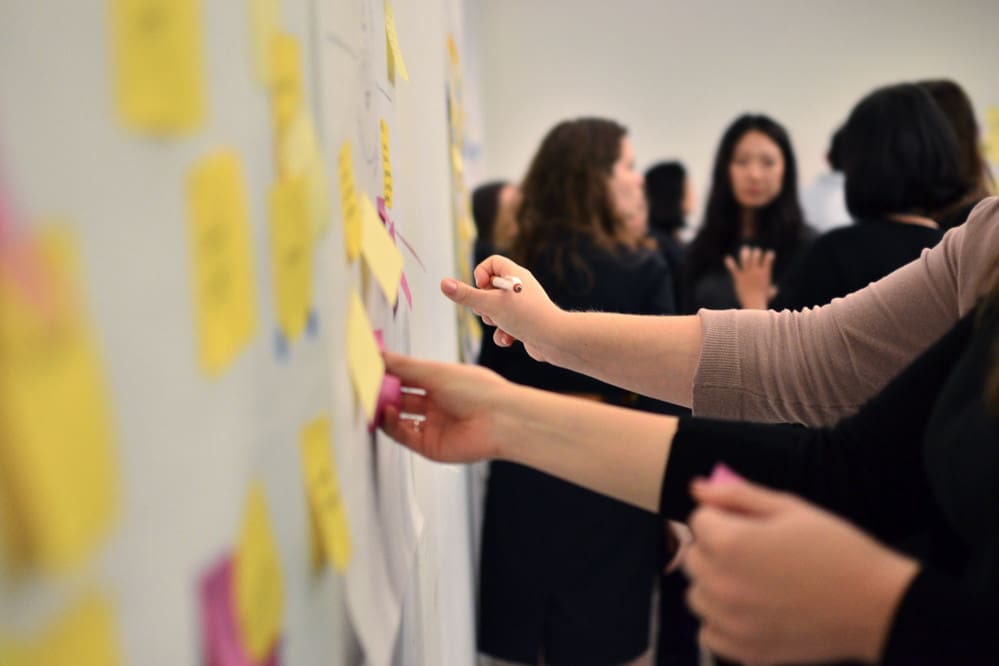
Compare Providers
Download our outplacement comparison sheet
Request Pricing
Compare our rates to other providers
Many organizations are turning to executive coaches to help their senior leaders unlock their full potential at work. However, with a vast number of coaches to choose from, it’s important to take your time and pick the one that’s right for you. With so many options available, it can be difficult to know where to start. How do you pick the one who will really help your executives reach their goals? What should you look for to make sure you find the best coach for your organization?
In this article, we’ll explore the various avenues for how to find an executive coach perfectly tailored to your needs. From leveraging online platforms to exploring local resources, we’ll provide insights into the vetting process and offer guidance on the questions to ask to ensure you make an informed decision.
How Do I Find the Right Executive Coach for Me?
Finding the right executive coach begins with reflection and understanding the specific needs and objectives of both your individual executives and larger organization. Consider what areas of their professional lives you want to improve upon or develop further. Whether it’s leadership skills, communication abilities, or navigating career transitions, identifying these goals will help narrow down your search for an executive coach with the expertise and experience to address your requirements.
How to Find an Executive Coach Online
The digital age has made it easier than ever to connect with executive coaches online. Numerous platforms and directories specialize in matching individuals with qualified coaches based on their unique criteria.
LinkedIn can be a goldmine for finding executive coaches. Utilize its search function to find coaches based on their location, industry expertise, and recommendations. Explore the profiles of potential coaches to assess their background, experience, and client testimonials.
Websites dedicated to coaching directories, such as the International Coaching Federation (ICF), offer comprehensive databases of certified coaches worldwide. These directories allow you to filter your search based on various criteria, including location, specialty areas, credentials, and coaching methodologies. Take advantage of these platforms to discover a diverse range of executive coaches who meet your specific requirements.
How to Find an Executive Coach Near Me
While online resources provide a vast pool of executive coaches to choose from, some individuals prefer the convenience of working with a coach in their local area. To find an executive coach nearby, consider reaching out to professional organizations, networking groups, or industry associations within your community. Attend local events, workshops, or conferences where executive coaches may be present, and take the opportunity to connect with them in person. Building a rapport with a coach face-to-face can foster a deeper understanding of their approach and compatibility with your needs.
Here at Careerminds, our executive coaching program boasts the most qualified, best-trained coaches who can provide personalized, one-on-one coaching for your executives that improves leader performance, increases retention, and results in a more positive workplace culture.
How Do You Approach an Executive Coach?
Approaching an executive coach involves initiating a dialogue to discuss your goals, expectations, and compatibility. Most executive coaches offer an initial consultation or discovery session to explore whether there’s a good fit between coach and client.
Prepare for this meeting by outlining the objectives, challenges, and desired outcomes of your executives and organization. Be open and transparent about what you hope to achieve through executive coaching, and ask questions to gain insights into the coach’s methodology, experience, and approach.
Establishing clear communication and mutual understanding from the outset sets the foundation for a productive coaching relationship. Let’s explore some examples of what you might share and ask during the consultation.
Here are a few examples of what you or your individual executives might share with a potential executive coach to gauge that coach-client fit:
Background and Goals
“I’ve/My executive has been in a leadership role for [X years] and am/is looking to enhance my/their skills in [specific area such as strategic planning or team management]. My/Our ultimate goal is to [specific career aspiration], and I believe executive coaching can help me/us get there.”
Challenges and Obstacles
“One challenge I’ve/they’ve been facing is [describe a specific challenge or obstacle], which has been hindering my/our progress in achieving my/our goals. I’m seeking guidance on how to overcome this challenge and develop effective strategies for success.”
Strengths and Weaknesses
“I/They recognize that my/their strengths lie in [mention your/their strengths], but I/they also acknowledge areas where I/they can improve, such as [mention your/their weaknesses]. I’m/We’re open to feedback and committed to personal and professional growth.”
Expectations from Coaching
“I’m/We’re looking for a coach who can provide personalized guidance and support to help me/us identify blind spots, leverage my/our strengths, and develop actionable plans to achieve my/our objectives. I/We value honesty, accountability, and a collaborative coaching approach.”
Availability and Commitment
“I’m/We’re committed to investing time and effort into the coaching process and am/are willing to dedicate [X hours] per week for coaching sessions and follow-up assignments. I’m/We’re also open to flexible scheduling to accommodate both of our calendars.”
What to Ask During the Consultation
Now let’s review some examples of questions you and your executives can ask to further assess how well a potential coaching partner will fit with you:
Approach and Methodology
- Can you provide an overview of your coaching approach and methodology?
- How do you typically structure coaching sessions, and what techniques or tools do you use to support clients in achieving their goals?
Experience and Expertise
- What specific experience and expertise do you bring to coaching clients in [mention your area of focus]?
- Can you share examples of past clients who have achieved success in similar areas through your coaching?
Client-Centered Approach
- How do you tailor your coaching approach to meet the individual needs and preferences of your clients?
- Can you provide examples of how you’ve adapted your coaching style to different personality types or leadership styles?
Communication and Feedback
- How do you facilitate communication and feedback during the coaching process?
- What mechanisms do you have in place to ensure that we stay aligned on goals, progress, and expectations throughout our coaching journey?
Measuring Progress and Success
- How do you measure progress and success in coaching engagements?
- Do you use any specific metrics or evaluation tools to track outcomes and assess the effectiveness of coaching interventions?
Availability and Support
- What is your availability for coaching sessions, and what is your preferred method of communication for follow-up support or questions outside of scheduled sessions?
- How do you ensure ongoing support and accountability between sessions?
Cost and Logistics
- Could you provide information about your coaching fees, payment structure, and any additional costs associated with coaching materials or assessments?
- Are there any logistical considerations I should be aware of before committing to coaching sessions?
By sharing relevant information about your executives and organization, and asking thoughtful questions during the consultation, you can ensure that both you and the coach have a clear understanding of expectations and objectives, setting the stage for a productive and fulfilling coaching relationship.
How Often Should You Meet with an Executive Coach?
The frequency of coaching sessions can vary depending on individual needs, goals, and availability. It’s essential to consider the duration of your coaching engagement, as longer time periods are often better suited to achieving transformative changes in leadership abilities. While some immediate goals may be addressed within a few sessions, deeper behavioral shifts and skill development typically require ongoing coaching over several months or even years.
Your executive coach may recommend a specific time frame based on the complexity of your objectives and the desired level of growth. Longer-term coaching engagements allow for a more comprehensive exploration of leadership challenges, opportunities for experimentation, and sustained progress monitoring. They also provide ample time for building trust, refining strategies, and embedding new behaviors into your professional repertoire.
During your consultation with the executive coach, inquire about their recommended duration for the coaching engagement and the rationale behind it. Be open to their guidance and expertise, as they can provide valuable insights into the realistic timeline needed to achieve meaningful and sustainable results. Remember that coaching is an investment in your long-term success, and committing to a longer engagement can yield significant dividends in your organization’s leadership development journey.
How to Find an Executive Coach: Key Takeaways
Finding the right executive coach requires careful consideration of your objectives, preferences, and compatibility with potential coaches. Whether you choose to explore online resources or connect with coaches locally, the key is to approach the search process with clarity, openness, and a willingness to invest in personal and professional growth. By selecting an executive coach who understands your organization’s and executives’ unique needs and challenges, you can embark on a transformative journey towards realizing their full potential as a leader.
Here are the key takeaways to guide you through the process:
- Reflection is the first step: Take the time to understand your organization’s and executives’ specific needs, goals, and areas for development. Clarifying your objectives will help you identify the executive coach who can best support that journey.
- Leverage online resources: Explore platforms like LinkedIn, coaching directories, and professional organizations to discover a diverse pool of executive coaches. Review their profiles, credentials, and client testimonials to assess their suitability for your needs.
- Consider local options: While online platforms offer accessibility, connecting with executive coaches in your local community can provide added convenience and opportunities for in-person interaction.
- Approach the consultation with openness and clarity: Share relevant information during the consultation about your organization and executives, including goals, challenges, and expectations. Ask thoughtful questions about the coach’s approach, experience, and methodology to ensure alignment and compatibility.
- Commit to a suitable coaching frequency and duration: Collaborate with your executive coach to determine the optimal frequency and duration of coaching sessions based on your objectives and availability. Longer-term engagements allow for deeper exploration and sustainable growth of leadership abilities.
Ready to hire an executive coach for your organization’s senior leaders? Take a look at our executive coaching program at Careerminds. Schedule a free live demo with one of our experts today to see what makes us stand out from the rest.
In need of outplacement assistance?
At Careerminds, we care about people first. That’s why we offer personalized talent management solutions for every level at lower costs, globally.



